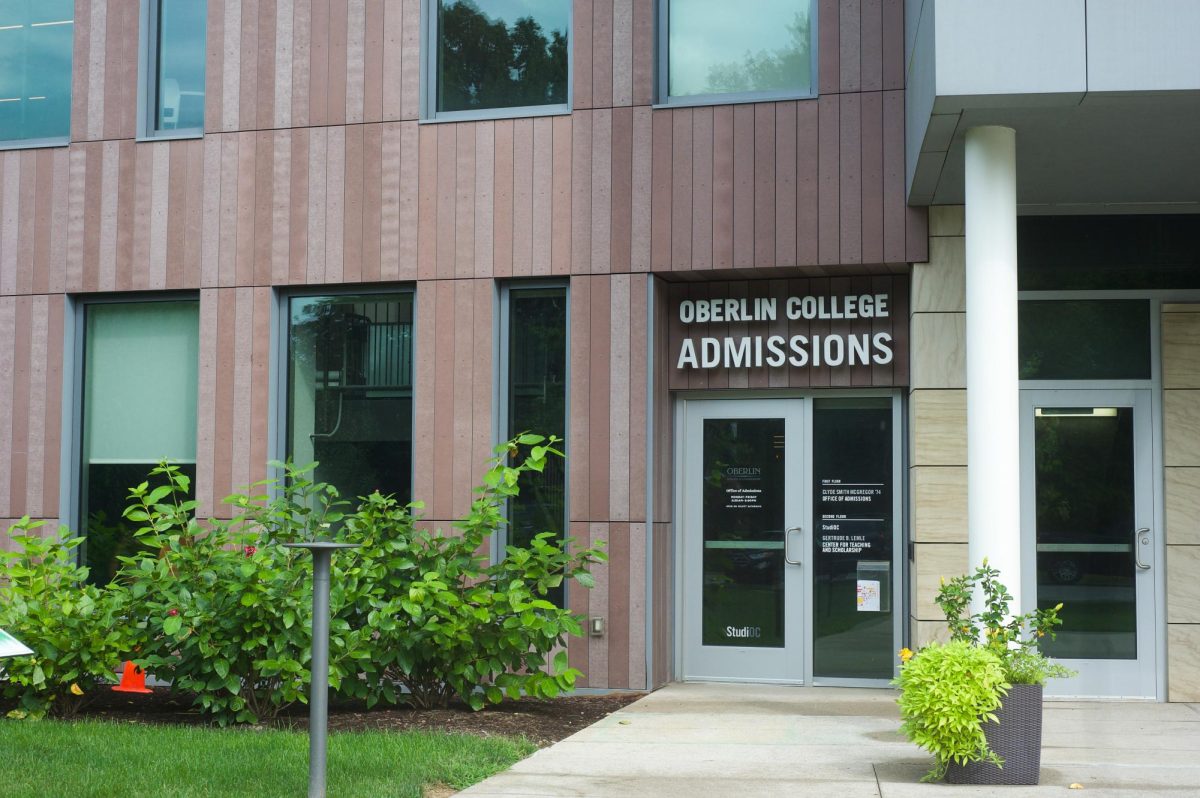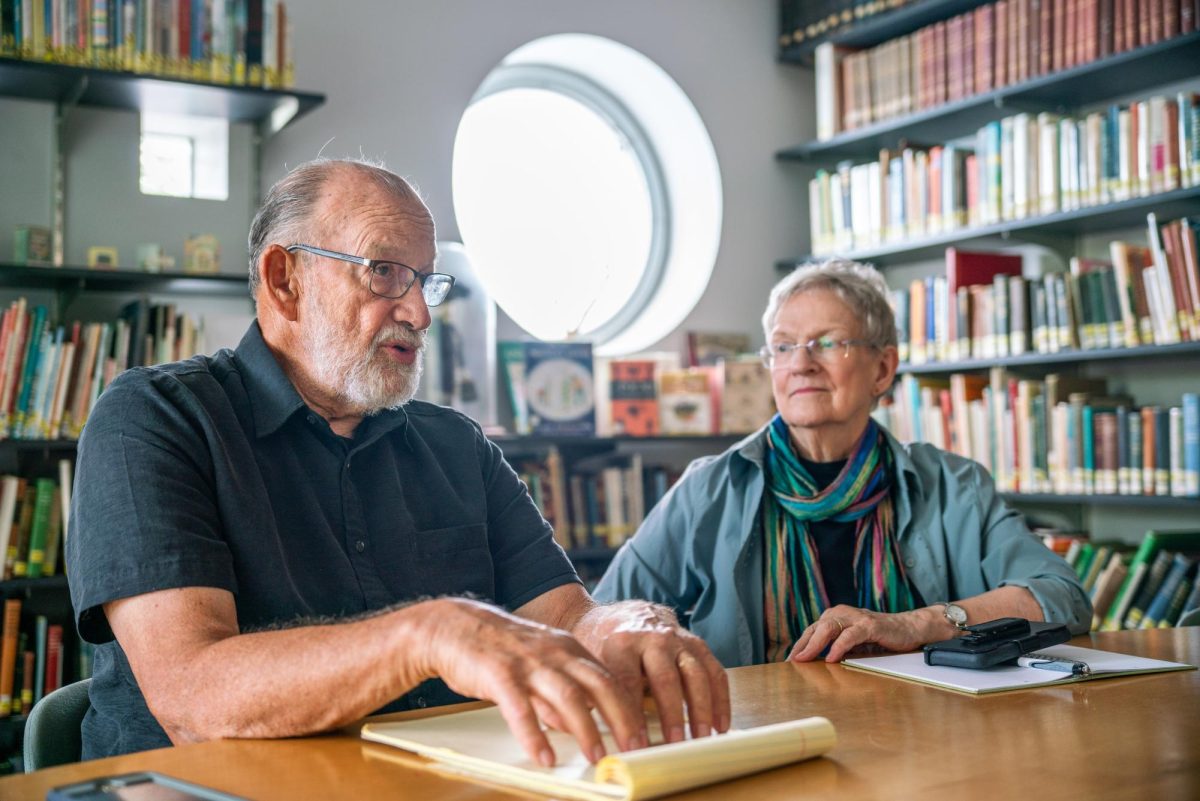On the morning of June 29, the Supreme Court overturned affirmative action through lawsuits by Students for Fair Admissions against both the University of North Carolina at Chapel Hill and Harvard University, ruling that race cannot be a factor used in admissions for higher education. Oberlin released a statement later that day, acknowledging the weight of this decision with an assurance that Oberlin would be there to support students during this time. Shortly afterward, President Carmen Twillie Ambar released a statement ensuring that racial equity would still be at the forefront of Oberlin’s mission.
“The high court’s ruling to end the ability of colleges and universities to consider race as a factor in the admissions process disregards the crucial contributions students from historically marginalized communities make to the intellectual and cultural life of our campus,” President Ambar wrote. “It also wrongly assumes that racial bias barring people from opportunity is a thing of the past, ignores the enduring effects of systemic discrimination, and perpetuates a cycle of inequality. As a standard-bearer for equal opportunity in higher education, we will review the decision carefully to fully understand the implications for our existing and future efforts to build an eclectic campus.”
Executive Chairman of the Lorain County Republican Party David Arredondo released a statement praising the ruling. Arredondo’s statement argued that the ruling was “long overdue”, and that colleges should college admission should consider socioeconomic status and immigration status instead of race.
“My solution to replacing Affirmative Action in college admissions is that socioeconomic and legal immigration status be used to help less advantaged college applicants,” Arredondo wrote. “We should boost working class and non-college graduate households and first generation immigrant families.”
President Ambar’s statement was directly quoted in a letter from Ohio Senator J.D. Vance, sent July 6. In it, Vance warned President Ambar as well as the presidents of Kenyon College and all eight Ivy League schools, comparing their reactions to the defiance against Brown v. Board of Education and requesting that the colleges respond to him by July 21 to ensure that they adhere to the ruling.
“Statements along these lines are particularly disconcerting in light of recent revelations that proponents of unlawful affirmative action sometimes practice ‘unstated affirmative action,’ in which hiring and admissions decisions are made on the basis of race in a covert and unspoken way, even when the relevant decision maker is placed under oath in a deposition,” Vance wrote.
Oberlin released a statement to the Ohio Capital Journal in an article published July 25 and ensured that they would comply with the law. In an email to the Review, Vice President and Dean of Admissions and Financial Aid Manuel Carballo discussed Oberlin’s comprehensive admissions practice.
“In our prior holistic review process, many factors were considered, including academic preparation, community and extracurricular involvement, and race, among others,” Carballo wrote.
Carballo noted that the Supreme Court opinion does not prohibit universities from taking applicants’ discussion of how race, has affected their lives into consideration.
“As explained in a Q & A issued by the The Departments of Justice and Education in August, this means … that ‘a university could consider an applicant’s explanation about what it means to him to be the first Black violinist in his city’s youth orchestra or an applicant’s account of overcoming prejudice when she transferred to a rural high school where she was the only student of South Asian descent,’” Carballo wrote. “In other words, students who believe race is an important part of their experience should feel free to write about it.”
The Supreme Court first announced that it would hear challenges to affirmative action Jan. 24, 2022. This gave the administration a year and a half to identify how Oberlin would be affected by the ruling.
“Because we did not know what the scope of the SCOTUS ruling would be, we looked at programs on campus that could potentially be affected and had conversations with those overseeing those programs about how the ruling might impact their work,” President Ambar wrote in an email to the Review. “Regular meetings and conversations about the potential implications of the ruling were held at every level of the college in the months leading up to the ruling.”
One of these programs affected is the Multicultural Visit Program. As previously reported in the Review, MVP is a program for prospective students from underrepresented communities who are flown into Oberlin for the weekend so that they can experience campus life before applying. MVP has been renamed Oberlin Overnight: Diversity and Access, and is now open to anyone who is passionate about a commitment to diversity.
“Students will be selected for participation based on their academic qualifications and demonstrated interest in diversity issues, with priority given to students from families with limited financial resources,” Carballo wrote. “All students who share our dedication to diversity are invited to apply. We particularly encourage applications from students who identify with historically underrepresented groups, such as those who are the first generation in their family to go to college, low-income, and/or students of color. In the spring, we will continue to host [Oberlin Overnight] … during All Roads Lead to Oberlin. Making sure folks understand our commitment to diversity and inclusion when they visit campus is more important now than ever.”





